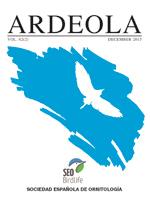This paper studies the ratification by Spain, in 1955, of the 1950 Convention for the Protection of Birds. This international agreement established a general protocol for the protection of all wild birds, although it included some exceptions for the capture of certain species that could be harmful to agriculture or hunting, through requesting individual authorisations. I have analysed the possible reasons why the Spanish Government accepted the 1950 Convention at the same time as it passed a law that supported the indiscriminate elimination of different animals that were considered harmful. This latter law, which included most diurnal raptors, had severe consequences for the avifauna. Bibliographic research allows me to suggest that perhaps these seemingly contradictory actions were not casually made. Both originated from the same people and official government departments, whose new utilitarian orientation lacked scientific expertise and usually depended on forestry and hunting management, and the sociopolitical circumstances of the time. Furthermore, the 1950 Convention's own limitations could have had a negative influence, mainly due to the difficulties of implementation and the absence of institutional infrastructure to lobby States into greater involvement.
How to translate text using browser tools
1 December 2015
The Apparent Contradictions in the Ratification by Spain of the 1950 International Convention for the Protection of Birds
Juan José Ferrero-García
ACCESS THE FULL ARTICLE

Ardeola
Vol. 62 • No. 2
December 2015
Vol. 62 • No. 2
December 2015
acuerdos internacionales
animales dañinos
caza
especies protegidas
harmful animals
historia de la conservación
history of conservation




